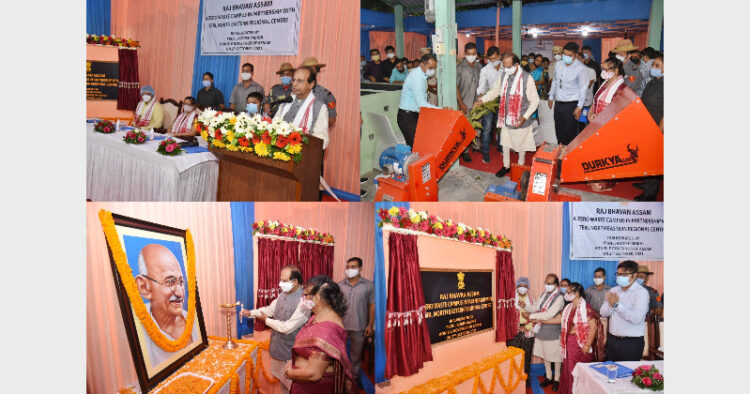Guwahati: Assam Raj Bhavan on the southern bank of the mighty river Brahmaputra at Kharghuli locality of the city sets to turn a zero
waste campus with an aim to achieving objectives of Swachh Bharat Abhiyan.
Governor professor Jagdish Mukhi has taken the lead in conceptualizing and implementing the mission to reduce the impact of waste on the environment drastically. TERI (the energy and resource institute) has technically supported the project as an implementation agency and knowledge & technical partner.
On the occasion of Gandhi Jayanti on Saturday (October 2), Governor Mukhi officially launched the implementation of zero waste management program at Raj Bhavan premises. The initiative is guided by a holistic approach for assessing solid & liquid wastes, their management, gap analysis, formulation and implementation of the standard waste management procedure.
Launching the project, Governor Mukhi commented that adopting zero waste management at Raj Bhavan is a forwarding step towards fulfilling the ideals of Gandhiji for a clean and green nation. He said that implementing zero waste management will minimise all harmful
discharges to land, water or air, which emerge as threats to the environment.
Prof Mukhi asserted that a fundamental constructive change would happen only when each and every individual participates and contributes to the cleanliness of the environment. He also added that a fitting tribute can be paid to Gandhiji only when every individual develops the sense of hygiene and shoulders the responsibility of keeping his surroundings clean.
It may be mentioned that Raj Bhavan in the city will be the first of its kind of zero waste campus in the country with provisions to manage solid & liquid waste and demonstrate the responsibility of Raj Bhavan towards effective planning, execution and monitoring mechanisms for cleaner and lively environment.
Being implemented as a part of Raj Bhavan’s efforts to adopt a system for preventing pollution and avoid costs associated with landfill
disposal, the project will be a model for other residential and institutional campus for replication and adoption of the technologies
for cleaner and zero waste campuses.The initiative is also expected to reduce carbon emissions by diverting the discarded materials from methane-generating landfills and avoiding the harmful gas emissions associated with extracting, processing and transporting raw materials & waste.
Four R principles (Reduce, Recycle, Recover and Reuse) are the tools to be used in the implementation of zero waste management being implemented at Raj Bhavan, said commissioner & secretary to the Governor Meenakshi Sundaram, in presence of TERI director
(north-eastern regional centre) Dipankar Saharia with others.














Comments